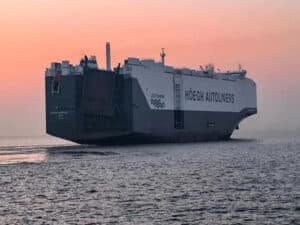
Can exhaust gas scrubbers help clean up microplastics pollution?
Written by Nick Blenkey
Exhaust gas scrubber wash water usually gets a bad rap, with a number of ports and region’s banning its discharge into their waters. That could change.
Wärtsilä and the Grimaldi Group have unveiled a new system that uses exhaust gas scrubber wash water to tackle the amount of microplastics in the world’s oceans; a critical and growing global environmental challenge.
Grimaldi has developed and patented a system that filters out microplastics from open loop scrubber wash water, trapping plastic particles before the wash water is returned to the ocean.
Wärtsilä is taking the Grimaldi solution to market. It has become the first company to obtain a non-exclusive license for the development and marketing of the new system which will be an integrated feature of Wärtsilä’s future wash-water treatment system.
The Grimaldi Group will will donate the revenues from the licensing of its patent to charity.
NEW SYSTEM REQUIREMENTS
The new system requires very little changes to onboard procedure and uses the natural capabilities of an open loop scrubber to contribute to cleaning the oceans during each voyage, says Wärtsilä. Currently, a 10-megawatt engine will require scrubbers to process approximately 450 cubic meters of water per hour, potentially resulting in a large amount of microplastics being captured from seawater. According to early test results, the microplastics filtration system is efficient in capturing particles smaller than 10µm and the captured concentration by volume equals around 76 particles per cubic meter.
Wärtsilä says that adding an abatement solution for microplastics to its portfolio further strengthens its commitment to use exhaust gas cleaning systems as a part of a modular platform that can enable further environmental technology innovations.
“Reducing microplastics pollution in our world’s oceans is an important challenge, and we are pleased to provide a solution for the shipping industry. The idea for this innovative technology originated from recognizing that open loop exhaust gas cleaning systems can draw seawater for exhaust scrubbing and simultaneously collect microplastic present in the oceans as part of their normal operation,” commented Emanuele Grimaldi, managing director of the Grimaldi Group. “We have already completed pilot testing of this system onboard one of our vessels deployed between Civitavecchia and Barcelona. The results are promising, with 64,680 microplastic particles collected on a single voyage between these two ports. We are glad that Wärtsilä also recognizes the potential of this system, and we look forward to further collaboration to tackle microplastics in our oceans”, Emanuele Grimaldi added.




